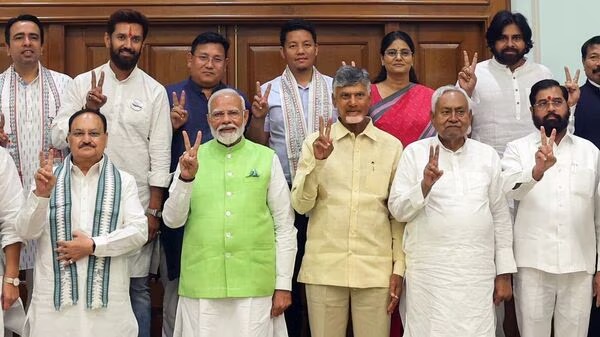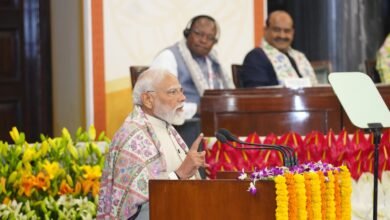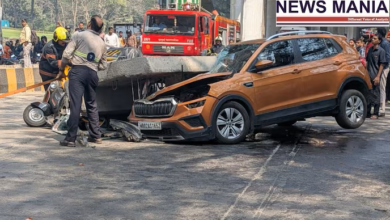Challenges and Strategies for BJP’s Legislative Agenda in Modi 3.0

News Mania Desk/ Agnibeena Ghosh/29th June 2024
In its third term, the BJP, led by Prime Minister Narendra Modi, finds itself in a different political landscape compared to its previous tenure. Despite falling short of a simple majority in the Lok Sabha with a reduced tally from 303 to 240 seats, the BJP remains in a position to pass legislation with the support of its NDA allies. However, the situation in the Rajya Sabha presents a more intricate challenge.
The BJP-led NDA is currently three seats shy of a majority in the Rajya Sabha. In the 245-member Upper House, the majority mark stands at 123, but with five vacant seats, the effective majority is now 121. The BJP has made significant strides, securing 30 out of the 56 seats contested earlier this year, bringing its total to 97, with the NDA collectively holding 118 seats. Yet, this falls short of the required majority, necessitating strategic alliances and negotiations to ensure legislative success.
Historically, the opposition has effectively blocked significant bills in the Rajya Sabha. For instance, the Land Reform Bill and the Triple Talaq Bills faced substantial resistance, with the latter only passing in Modi’s second term thanks to support from friendly opposition parties like the BJD, YSRCP, BRS, and AIADMK. However, the current political dynamics have shifted, complicating BJP’s legislative efforts.
Naveen Patnaik’s BJD, once a reliable supporter, has turned away after losing power in Odisha, aligning more closely with the larger opposition. Similarly, Jagan Mohan Reddy’s YSRCP might follow suit after its defeat in Andhra Pradesh by the NDA. The AIADMK’s fallout with the BJP over regional disputes and the BRS’s dissatisfaction following political attacks and the ED’s investigations further erode BJP’s support base in the Upper House.
The BJP’s strained relations with these parties highlight the challenges it faces in passing crucial legislation. Naveen Patnaik’s personal grievances, stemming from a controversial video and subsequent BJP remarks about his health, have deepened the rift. The BRS, under K Chandrashekhar Rao, remains wary due to ongoing investigations into its leaders, including K Kavitha, who was arrested in connection with the Delhi liquor scam.
Despite these setbacks, the BJP remains optimistic. A Union Minister, speaking anonymously, dismissed concerns about legislative hurdles in the Rajya Sabha, emphasizing the divided nature of the opposition and the potential for cross-party support on specific issues. The TMC’s demand for Rs 7,000 crore under the 100-days work scheme and their warmer relationship with current agriculture minister Shivraj Singh Chouhan, compared to his predecessor, exemplify potential areas for negotiation and cooperation.
Government insiders suggest that backchannel negotiations with opposition parties continue, keeping the door open for “issue-based support.” The YSRCP, despite its political shifts, maintains a working relationship with the government, evident from recent meetings between Jagan Mohan Reddy’s aides and BJP ministers regarding regional development projects.
Looking ahead, the impending assembly elections in Jammu and Kashmir, following delimitation that politically favors the BJP, present an opportunity for the party to secure additional Rajya Sabha seats. This potential gain could bring the BJP closer to a majority in the Upper House, enhancing its legislative leverage.






